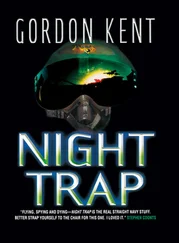Gordon Kent
DAMAGE CONTROL

To the men and women, Japanese and American, who stopped Aum Shinrikyo
Cover
Title Page Gordon Kent DAMAGE CONTROL
Prologue
Day One
1
2
3
4
5
6
7
8
9
10
11
Day Two
12
13
14
15
16
17
18
19
20
21
22
23
Day Three
24
25
26
27
28
29
30
31
Day Four
32
33
34
35
36
Coda
By Gordon Kent
Author’s Note
Copyright
About the Publisher
In a porcelain bowl floats a single lotus flower, waiting.
Meditation appears to the untrained as a passive activity. To the observer, the practitioner’s body seems poised but relaxed, the breathing even, the face calm. Westerners speak dismissively of men “studying their belly buttons.”
Mohenjo Daro sits easily on a low leather divan, his long legs crossed under him and his arms relaxed, hands resting easily on his knees. Aside from his pose, little about him suggests meditation. He wears a simple silk sweater from Italy and jeans. His face is that of a warrior from ancient Indian art, with rugged features and a pale walnut color. He was, and is, handsome, in a military way, the iron gray in his hair accenting the strong wrinkles in his skin. Nothing about him speaks of the ascetic except that his feet are bare.
His eyes are open. The pupils are huge, black, and blank, the irises almost as dark under heavy brows. And between them, exactly where a Brahmin’s caste mark would be, there is a birthmark, a third eye placed by nature.
The lotus flower. Daro sees it, regards it as a composite of organic material, as a symbol, an object of power. He seeks to know it without effort, to comprehend both the flower before him and the totality of the lotus. And having accomplished this to his satisfaction, he watches this blossom curl and close and then open, the water undisturbed beneath it, the petals of the flower uncurling like stop-action photography. The petals reach their full, erotic opening, and then he watches them wilt and decay, the first touch of orange brown on the edges to the last black organic mold resting on the surface of the unmoving water. And then he begins to restore the flower, working the mold back to the ravaged blossom and then seeking the full bloom of perfect health. When the petals have risen from their watery grave and stand, shriveled but extant, once again attached to the stamen, Daro gives a sudden gasp as intense pain floods his abdomen, snapping his focus from the life of the flower to the dying of his own body.
In a porcelain bowl floats a single lotus flower, unchanged, but the man is writhing on his divan. The spasm passes, and he is angry, although the mood passes as quickly as the unfolding of the flower. He rises and zips on a pair of Spanish leather boots and crosses to the door, the flower abandoned. One hand remains on his abdomen.
He reentered his household when he left his meditation chamber. Outside waited the cares of the world as represented by his aide, Vashni, who bowed. He smiled at her. “Give me a lemon drop, Vash.”
She produced one, her head tilted to one side. She could read that his meditation was not satisfactory. “I have all the reports, sir. Our military situation is good. I have reports from each of our member units with their status and preparedness. Only the Nehru has not reported in, which was to be expected.”
“Excellent.”
“Some of the financial information is late from Delhi because the government closed the exchange early.”
“Really? Whatever for?”
“There was the threat of a terrorist act. Or so the television claims.”
“Any effect on us?”
“None.” She was confident, arrogant.
He was walking now, leaving meditation for business and chewing his lemon drop. She followed him, reading figures on the output of factories and the price quotes of stocks that he assimilated without need of a pen and paper in much the way he could know the fullness of the lotus. Details of military units loyal to him and prepared to act. As he expected. He was making enormous sums of money, also as expected. He went to his office, nodded gravely to his private secretary in greeting as he passed through the outer office and continued to his desk, his attention on Vash unwavering. She had already prepared his laptop with input from her own files and he clicked idly through PowerPoint slides that illustrated the points she was making.
“What a pity that we cannot simply buy the world and fix her,” he said with a smile, looking at the vast sums of money they were compiling.
Vash smiled in return.
Daro touched a button on his desk and ordered tea. Then he reached under his shirt and withdrew a small golden plastic shell and plugged it into his laptop. The screen cleared and another image took its place, then passed away in a swirl of graphics, to be replaced by a word-processing screen.
His private secretary, once a devout Muslim, came in with a tray of tea and set it on his desk. He paused expectantly, and Daro motioned him to sit and join them. “Really, Ali, you might as well drink tea with us. A few more people might help create a sense of drama.”
Both of them laughed. “Drama” was usually a word of opprobrium to the believers. In this case, the absence of drama was clear, and almost comic given the gravity of the moment.
“I could not sleep last night, sir,” Ali murmured. He was an old man; the admission seemed boyish.
“Goodness, Ali. You don’t have reservations? If you do, please tell me.”
“Not reservations, sir.” A certain gleam came into Ali’s eyes, almost rakish. “Eagerness.”
Vash nodded as well. “So long in the planning,” she murmured. “So quick in the execution.”
Daro smiled, opened his mouth, and was hit by another spasm. He put his head down and held his abdomen with both hands, and when he raised his head, much of the color had left his face. “It won’t be so quick, my friends, because something will go wrong.”
They looked startled.
He nodded and took a lemon drop from the bowl on his desk. “No plan survives contact with the enemy. We will act, and someone will react, and we will react to their reacting, and there will be conflict and uncertainty and death. Something will surprise us, and our true test will not be in the years we prepared but in the moments where we must react to something we have not expected. That is the way.”
Vash, the consummate businesswoman, shook her head. “After all this preparation, I expect better. I expect victory.” She sounded as if she demanded it.
“Have I taught you nothing?” The color was back in his face, and his left hand had moved from his abdomen. He sat straighter. He looked at Vash. “There will be no victory, Vash. Or if there is a victory, it will be so impersonal that we will not recognize it, and few of us will see it, or even enjoy it. That is what it means to be a servant rather than a master. We serve the earth. The earth will never thank us except by surviving and thriving when we are gone.”
She nodded with her eyes cast down. “I spoke rashly.”
“Excellent! If everyone remembered every lesson and had no thoughts of his own, we would be working for the opposite of entropy, I think. Are we ready?”
“I would have liked this naval exercise with the Americans to have finished.”
Читать дальше













